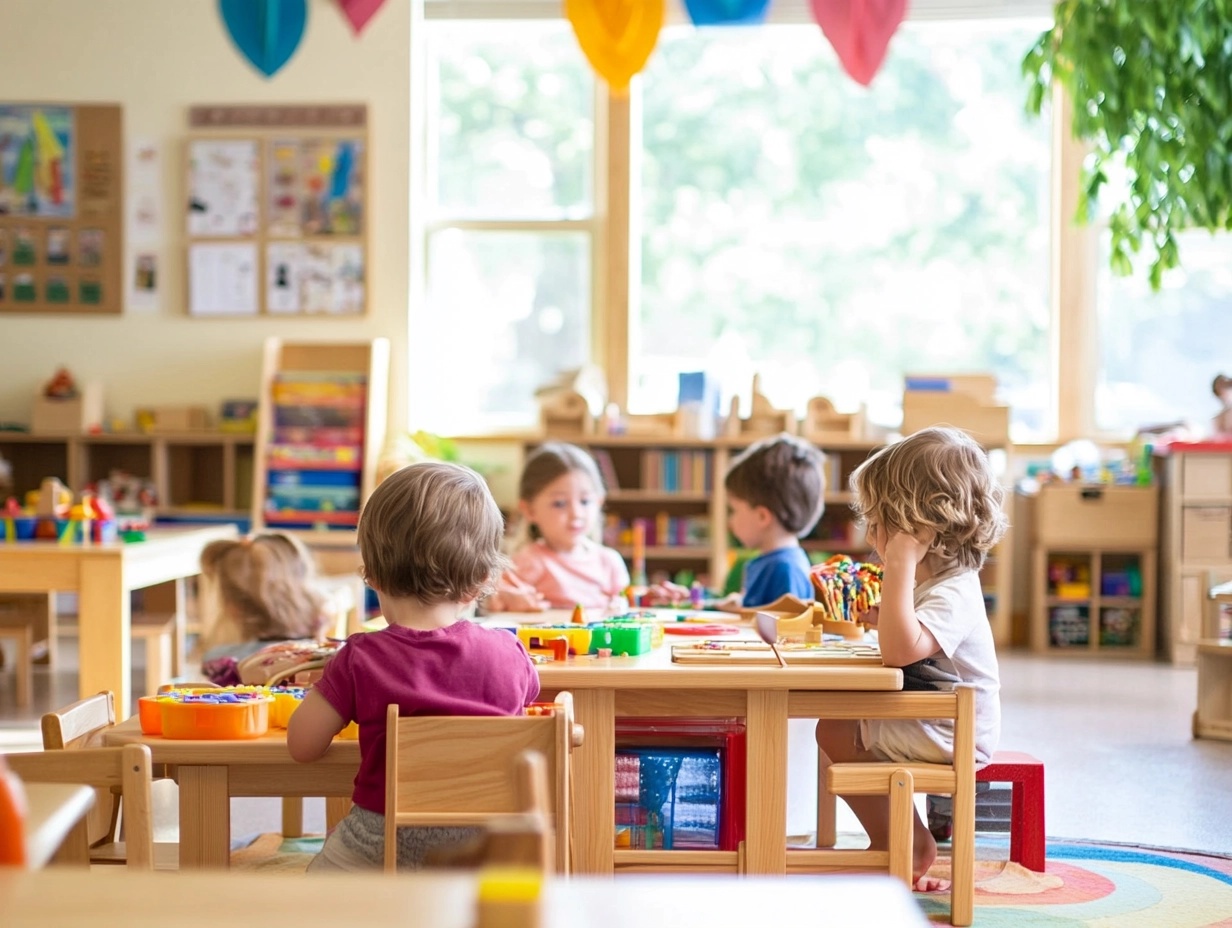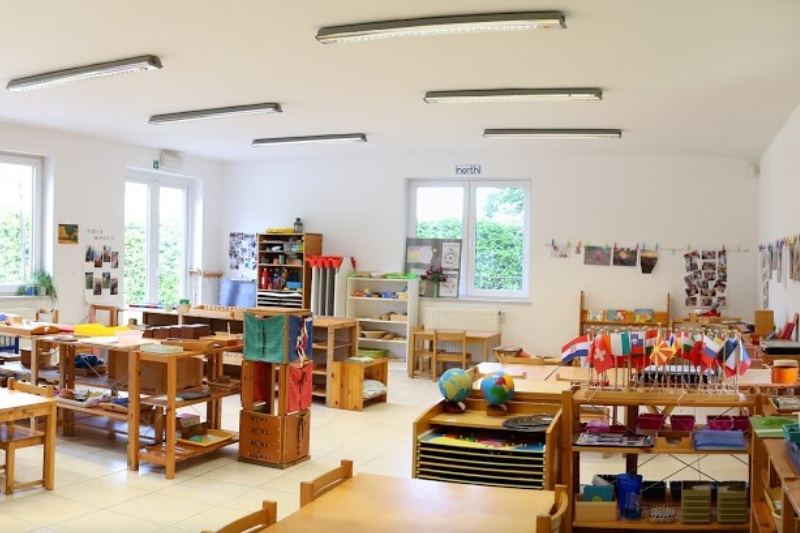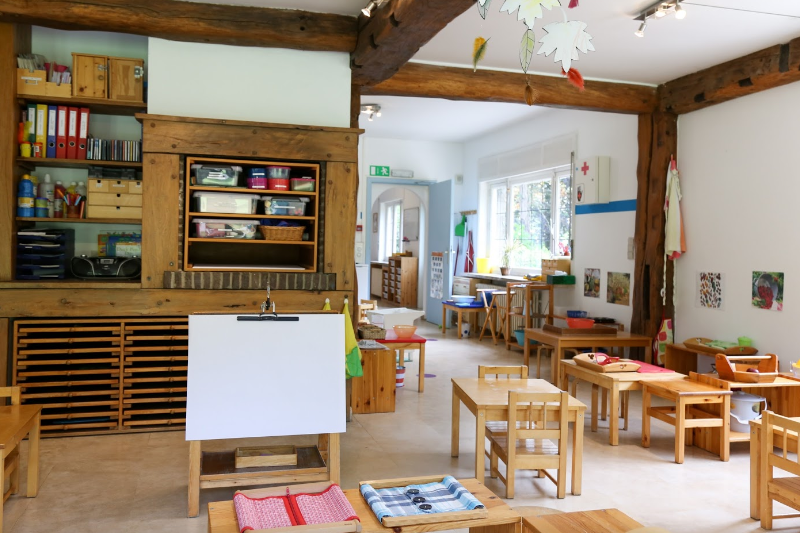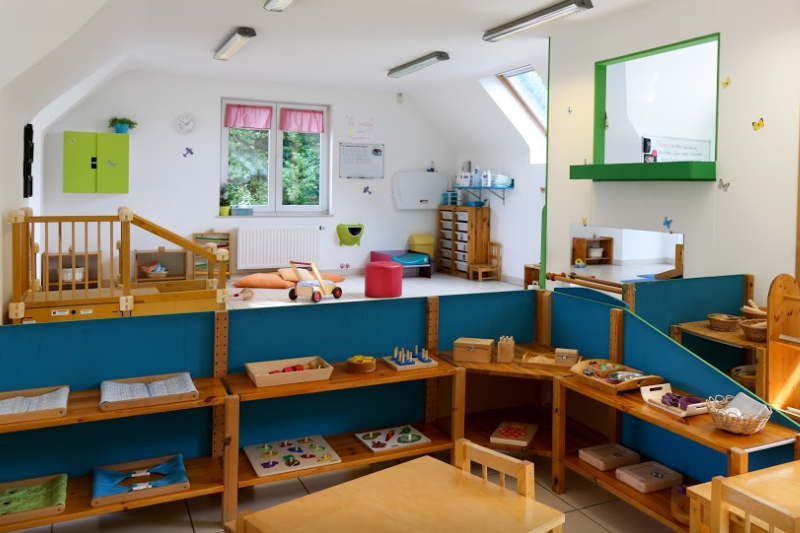
What is Montessori Education?
Created in 1907 by Maria Montessori, Italy’s first female doctor, Montessori education is based on an educational approach that respects the natural rhythm of each child. Centered around sensory exploration, autonomy, and freedom of choice, this method encourages children to learn independently, using specialized materials and evolving within an environment suited to their developmental needs.
In a Montessori classroom, the child is actively engaged in their own learning: they choose activities based on their interests, experiment through play, and develop self-confidence. The educator acts as a guide rather than merely instructing, fostering curiosity and initiative. Maria Montessori famously advocated: “Help me to do it myself“. This concept forms the foundation of an autonomy-based educational approach guided by teacher actions.
The Montessori method thus aims to foster child development within a customized environment suited to their psychological needs.

Key principles of the Montessori Method
Montessori education at each age
From 0 to 3 years: Montessori nursery
In Montessori nurseries, the goal is to develop independence and motor skills. Through simple activities like setting the table, dressing themselves, or pouring water, children learn to manage on their own and gain confidence in their abilities.
From 3 to 6 years: Montessori kindergarten
The Montessori kindergarten is a place of exploration and experimentation. Through sensory materials and practical activities, children develop:
✔ Self-discipline and independence
✔ Coordination and concentration
✔ Introduction to mathematics and reading using adapted resources
Emphasis is placed on respecting each child’s pace, within a supportive and stress-free environment.
From 6 to 12 years: Montessori primary school
Montessori primary school allows children to explore complex subjects such as mathematics, history, science, and languages, using a practical and interactive approach.
Children develop:
✔ Intellectual curiosity and critical thinking
✔ The ability to self-learn
✔ Self-discipline and time management
Learning often happens collaboratively, promoting cooperation rather than competition.
From 12 to 18 years: Montessori secondary school
The Montessori approach is less developed at the secondary level, as Maria Montessori did not detail a specific adolescent curriculum. However, some schools adapt the pedagogy, promoting autonomy, responsibility, and active learning. Students frequently participate in practical and interdisciplinary projects, integrating sciences, arts, languages, and social skills.
Montessori schools in Brussels
In Brussels, several international Montessori schools offer this educational method. These schools provide an educational environment tailored to children’s needs, featuring multi-age classes, authentic Montessori materials, and individualized approaches.
Why choose a Montessori school?
✔ More natural and autonomous learning: Children develop intrinsic motivation and learn joyfully.
✔ A pedagogy respectful of each child’s rhythm: No pressure, no competition, only progress adapted to each child.
✔ A supportive environment: Children grow in a secure, nurturing setting conducive to discovery and self-confidence.
✔ Essential future skills: The Montessori method prepares students to be curious, independent, and adaptable in a rapidly evolving world.
Conclusion
Montessori education is more than just an educational method—it is a philosophy of learning, centered on child fulfillment and respect for individuality. Several Brussels schools apply this approach, offering families an enriching alternative to traditional education.
If you wish to enroll your child in a Montessori school in Brussels, contact institutions directly to learn about their programs, admissions criteria, and educational philosophies.




